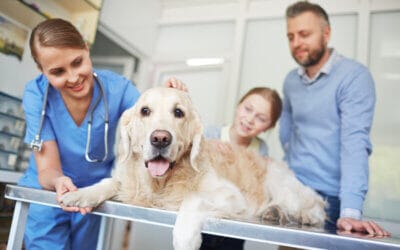With cold and flu season in full swing, you might be wondering whether you can give illnesses to your pet. Read on to find out what can — and can’t — be transmitted from humans to pets.
Reverse zoonosis is the passing of disease from humans to animals. While this field hasn’t been widely studied, scientists do know that disease transmission from humans to animals is relatively rare.
Pets can contract tuberculosis, salmonella, ringworm, methicillin-resistant Staphylococcus aureus (MRSA), giardia, and mumps from humans. They can also experience symptoms of the common cold and influenza, although the risk of transmission from humans is low and these viruses are usually species-specific.
COVID-19
When it comes to COVID-19, the CDC says it appears that humans can transmit it to pets in certain situations, like close contact with an infected person. Only a small number of cases have been reported, and pets who contract COVID-19 may experience mild to no symptoms. The CDC also says there is “no evidence that pets play a significant role in spreading the virus that causes COVID-19.”
Dogs and cats can get another form of coronavirus — canine coronavirus and feline enteric coronavirus — typically through contact with infected feces. Neither virus affects humans. Cases are generally mild with few or no symptoms. However, in some cases, feline coronavirus can mutate into the deadly feline infectious peritonitis.
Pet-to-Human Transmission
What about going in the opposite direction — can pets give illnesses to humans? It’s uncommon, but it can happen. Humans can contract rabies, toxoplasmosis, salmonella, and infections from hookworm and ringworm.
You can prevent or reduce your risk of getting these diseases through vaccinations, good hygiene, and regular vet checkups.
Staying Safe and Healthy
Even though the risk of transmission is low — both from human to pet and vice versa — there are several ways you can keep yourself and your pet protected. This includes washing your hands with soap and water after handling your pet, coming in contact with saliva or feces, and handling your pet’s dishes and toys.
In addition, limit contact with your pet if you or someone in your house is sick, schedule yearly wellness visits to ensure your pet is in good health, and make sure you and your pet are up to date on vaccinations. Also be sure to consult a veterinarian if your pet experiences any symptoms of illness, such as vomiting, diarrhea, lack of appetite, or hair loss.
By following these guidelines, you can help ensure that you and your furry friend will stay healthy through many future cold and flu seasons.



